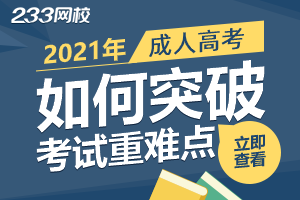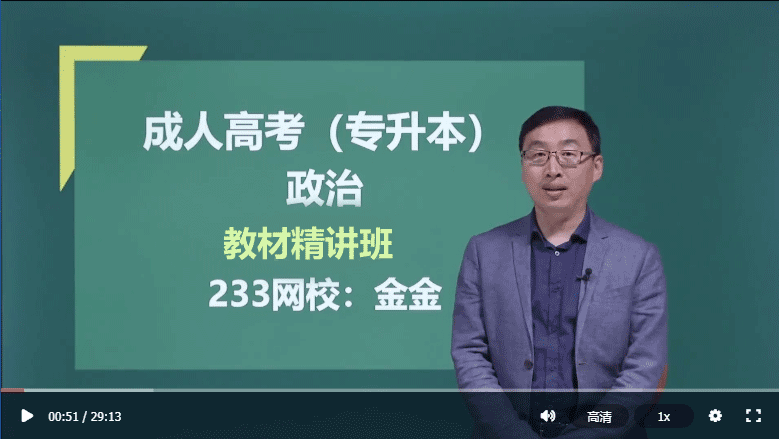2002е№ҙжҲҗдәәй«ҳзӯүеӯҰж Ўдё“еҚҮжң¬жӢӣз”ҹе…ЁеӣҪз»ҹдёҖиҖғиҜ•иӢұиҜӯиҜ•йўҳ
гҖҖгҖҖWhen I was a boyпјҢ children always objected 51 wearing school uniform but teachers were 52 on it because they said all of us looked 53 . OtherwiseпјҢ they saidпјҢ children would compete with 54 and the poorer children would be unhappy because people would see how poor they were. In recent yearsпјҢ howeverпјҢ many schools have 55 the idea of making children wear uniform but funnily enoughпјҢ now that children can wear 56 they likeпјҢ they have adopted a uniform of their own. When some journalists visited a London schoolпјҢ they found that all the boys and girls were dressed in jeans пјҲзүӣд»”иЈӨпјү. One girl said she would rather die than wear a coat instead of a jersey пјҲиҝҗеҠЁеҘ—иЎ«пјү because 57 wants to look different 58 the other children in the class. Parents may not be as happy about this as childrenпјҢ but they 59 to beпјҢ because this new kind of uniform is one that the children likeпјҢ not something they have been forced to wearпјҢ and it is also 60 cheaper than school uniform used to be.гҖҖ
гҖҖгҖҖ51. A. against B. to C. for D. onгҖҖ
гҖҖгҖҖ52. A. warm B. eager C. keen D. interestedгҖҖ
гҖҖгҖҖ53. A. same B. like C. as D. alikeгҖҖгҖҖ
гҖҖгҖҖ54. A. each other B. another C. themselves D. othersгҖҖгҖҖ
гҖҖгҖҖ55. A. waited for B. taken off C. put out D. given upгҖҖгҖҖ
гҖҖгҖҖ56. A. that B. which C. what D. asгҖҖ
гҖҖгҖҖ57. A. anyone B. no one C. none D. someoneгҖҖгҖҖ
гҖҖгҖҖ58. A. than B. that C. from D. toгҖҖгҖҖ
гҖҖгҖҖ59. A. ought B. should C. would D. hadгҖҖгҖҖ
гҖҖгҖҖ60. A. a lot B. very C. more D. a lot ofгҖҖгҖҖ
гҖҖгҖҖIV. Reading Comprehension пјҲ60 pointsпјүгҖҖгҖҖ
гҖҖгҖҖDirectionsпјҡ There are four reading passages in this part. Each passage is followed by five questions. For each question there are four suggested answers marked AпјҢ BпјҢ C and D. Choose the best answer and blacken the corresponding letter on ANSER SHEET I.гҖҖ
гҖҖгҖҖPassage OneгҖҖгҖҖ
гҖҖгҖҖAs you are students of EnglishпјҢ itвҖҳs very possible that youвҖҷll be interested in England.гҖҖгҖҖ
гҖҖгҖҖThatвҖҳs where the language was first spoken. But England is often called by other names.гҖҖгҖҖ
гҖҖгҖҖThis often confuses people and I wonder if you know what these names mean. SoпјҢ now I would like to tell you about this matter of names. I believe that you have heard people use the namesвҖ”EnglandпјҢ Britain or Great Britain. LetвҖҳs see what each of these names means.гҖҖгҖҖ
гҖҖгҖҖIf you look at a map of EuropeпјҢ youвҖҳll see a group of islandsвҖ”one larger island off the northwest coastпјҢ one smaller and many tiny ones. These make up what is called the British Isles пјҲдёҚеҲ—йў зҫӨеІӣпјү. The largest island of the British Isles is Britain. It is also called Great Britain. The smaller island is Ireland пјҲзҲұе°”е…°пјү.гҖҖгҖҖ
гҖҖгҖҖBritain is divided into three partsпјҡ ScotlandпјҢ Wales and England. But sometimes the WordвҖңEnglandвҖқis used instead ofвҖңBritainвҖқ. Why soпјҹгҖҖ
гҖҖгҖҖIn ancient timesпјҢ what is Britain now used to be three different countries. People inгҖҖ
гҖҖгҖҖThese different countries spoke different language. Over many years the three countries became one. England is the largest and richest of the three and it has the most people. So the English people take it for granted that their own name stands for the whole island.гҖҖ
гҖҖгҖҖ ThereвҖҳs another thing that confuses peopleпјҡ sometimes you may hear people sayвҖңthe Untied Kingdom of Great Britain and Northern IrelandвҖқ. That is official name of the country. Northern Ireland is only one sixth of the island of Ireland. The rest of the island is an independent stateпјҢ called the Republic of Ireland. So we have the names ofвҖңEnglandвҖқпјҢвҖңBritainвҖқпјҢвҖңGreat BritainвҖқпјҢ andвҖңthe United Kingdom of Great Britain and Northern IrelandвҖқ. Now do you know what each of them meansпјҹгҖҖ
гҖҖгҖҖ61. English was first spoken in .
гҖҖгҖҖA. Britain
гҖҖгҖҖB. England
гҖҖгҖҖC. Great Britain
гҖҖгҖҖD. IrelandгҖҖ
гҖҖгҖҖ62. Britain is divided into .гҖҖ
гҖҖгҖҖA. EnglandпјҢ BritainпјҢ and Wales
гҖҖгҖҖB. EnglandпјҢ ScotlandпјҢ and WalesгҖҖ
гҖҖгҖҖC. WalesпјҢ ScotlandпјҢ and Great BritainгҖҖ
гҖҖгҖҖD. Great BritainпјҢ WalesпјҢ and ScotlandгҖҖгҖҖ
гҖҖгҖҖ63. According to the passageпјҢ which of the following statements is trueпјҹгҖҖгҖҖ
гҖҖгҖҖA. Wales is the richest of the threeгҖҖ
гҖҖгҖҖB. Scotland is the largest of the threeгҖҖгҖҖ
гҖҖгҖҖC. Sometimes English is used instead of BritainгҖҖгҖҖ
гҖҖгҖҖD. Britain is the only name of the largest island of British IslesгҖҖгҖҖ
гҖҖгҖҖ64. The United Kingdom of Great Britain and Northern Ireland is .гҖҖгҖҖ
гҖҖгҖҖA. part of BritainгҖҖгҖҖ
гҖҖгҖҖB. part of British IslesгҖҖгҖҖ
гҖҖгҖҖC. the official name of the whole country EnglandгҖҖгҖҖ
гҖҖгҖҖD. the largest country of all mentioned in the passageгҖҖгҖҖ
гҖҖгҖҖ65. Which of the following is an independent countryпјҹгҖҖгҖҖ
гҖҖгҖҖA. Wales
гҖҖгҖҖB. ScotlandгҖҖгҖҖ
гҖҖгҖҖC. Northern Ireland
гҖҖгҖҖD. The Republic of IrelandгҖҖгҖҖ
гҖҖгҖҖPassage TwoгҖҖгҖҖ
гҖҖгҖҖEvery year just after Christmas the January Sales start. All the shops reduce their prices and for two weeksпјҢ they are full of people looking for bargains. My husband and I do not normally go to the sales as we donвҖҳt like crowds and in any case are short of money as we have to buy lots of Christmas presents.гҖҖгҖҖ
гҖҖгҖҖLast yearпјҢ howeverпјҢ I took my husband with me to the sales at the large shop in the center of London. We both needed some new clothes and were hoping to find a television set. When we got to station. So I left my husband and started looking around the shops. Unfortunately all the clothes were in very large sizes and so were not suitable for me. But I did buy a television at a very cheap priceпјҢ so I felt quite pleased with myself.гҖҖгҖҖ
гҖҖгҖҖWhen I arrived at the stationпјҢ my husband was not there. So I sat down in a nearby cafe to have a cup of tea. I quickly finished my tea when I saw my husband and went out to meet him. He looked very happy. Then I saw he was carrying a large and heavy cardboard box.вҖңOhпјҢ dearпјҒвҖқI thought. YesпјҢ we had no new clothes but two televisions. We shall not be going to the sales again.гҖҖ
гҖҖгҖҖ66. In January .гҖҖгҖҖ
гҖҖгҖҖA. lots of people go shopping for discountгҖҖгҖҖ
гҖҖгҖҖB. people have a lot of money to spend after ChristmasгҖҖгҖҖ
гҖҖгҖҖC. all the shops close for a two-week Christmas holidayгҖҖгҖҖ
гҖҖгҖҖD. people donвҖҳt have enough money to go looking for bargainsгҖҖгҖҖ
гҖҖгҖҖ67. In this passageпјҢ the wordвҖңbargainвҖқcould best be replaced byвҖңsomethingвҖқ.гҖҖ
гҖҖгҖҖA. given to peopleгҖҖгҖҖ
гҖҖгҖҖB. offered at a reduced priceгҖҖгҖҖ
гҖҖгҖҖC. offeredпјҢ sold or bought which is expensiveгҖҖгҖҖ
гҖҖгҖҖD. sold for the purpose of reaching an agreementгҖҖгҖҖ
гҖҖгҖҖ68. The husband and wife in the story .гҖҖгҖҖ
гҖҖгҖҖA. wished to buy a TVгҖҖгҖҖ
гҖҖгҖҖB. went to the sales the year beforeгҖҖгҖҖ
гҖҖгҖҖC. often went to the sales to buy clothesгҖҖгҖҖ
гҖҖгҖҖD. were usually not short of money after ChristmasгҖҖгҖҖ
гҖҖгҖҖ69. The phraseвҖңsplit upвҖқin the second paragraph meansвҖңвҖқ.гҖҖгҖҖ
гҖҖгҖҖA. break apart
гҖҖгҖҖB. cause to breakгҖҖгҖҖ
гҖҖгҖҖC. become pieces
гҖҖгҖҖD. go indifferent directionsгҖҖгҖҖ
гҖҖгҖҖ70. After their dayвҖҳs shoppingпјҢ they .гҖҖгҖҖ
гҖҖгҖҖA. were happy with their bargainsгҖҖгҖҖ
гҖҖгҖҖB. had got everything they wantedгҖҖгҖҖ
гҖҖгҖҖC. got more than they had hoped forгҖҖгҖҖ
гҖҖгҖҖD. had to go back to the sales the next dayгҖҖгҖҖ
гҖҖгҖҖPassage ThreeгҖҖгҖҖ
гҖҖгҖҖSome people argue that the pressure on international sportsmen and sportswomen kills the essence пјҲзңҹи°ӣпјү of sportвҖ”the pursuit of personal excellence. Children kick a football around for fun. When they get older and play for local school teamsпјҢ they become competitive but they still enjoy playing. The individual representing his country cannot afford to think about enjoying himselfпјҢ he has to think only about winning. He is responsible for entire nationвҖҳs hopesпјҢ dreams and reputation.гҖҖгҖҖ
гҖҖгҖҖA good example is the football Word Cup. Football is the worldвҖҳs most important sport. Winning the World Cup is perhaps the summit of international sporting success. Mention Argentina пјҲйҳҝж №е»·пјү to someone and the chances are that heвҖҷll think of football. In a senseпјҢ winning the World Cup put Argentina on the map.гҖҖгҖҖ
гҖҖгҖҖSports fans and supporters get quite unreasonable about the World Cup. People in England felt that their country was somehow important after they won in 1966. Last year thousands of Scots sold their carsпјҢ and even their housesпјҢ and spent all their money traveling to ArgentinaпјҢ where the finals were played.
гҖҖгҖҖ51. A. against B. to C. for D. onгҖҖ
гҖҖгҖҖ52. A. warm B. eager C. keen D. interestedгҖҖ
гҖҖгҖҖ53. A. same B. like C. as D. alikeгҖҖгҖҖ
гҖҖгҖҖ54. A. each other B. another C. themselves D. othersгҖҖгҖҖ
гҖҖгҖҖ55. A. waited for B. taken off C. put out D. given upгҖҖгҖҖ
гҖҖгҖҖ56. A. that B. which C. what D. asгҖҖ
гҖҖгҖҖ57. A. anyone B. no one C. none D. someoneгҖҖгҖҖ
гҖҖгҖҖ58. A. than B. that C. from D. toгҖҖгҖҖ
гҖҖгҖҖ59. A. ought B. should C. would D. hadгҖҖгҖҖ
гҖҖгҖҖ60. A. a lot B. very C. more D. a lot ofгҖҖгҖҖ
гҖҖгҖҖIV. Reading Comprehension пјҲ60 pointsпјүгҖҖгҖҖ
гҖҖгҖҖDirectionsпјҡ There are four reading passages in this part. Each passage is followed by five questions. For each question there are four suggested answers marked AпјҢ BпјҢ C and D. Choose the best answer and blacken the corresponding letter on ANSER SHEET I.гҖҖ
гҖҖгҖҖPassage OneгҖҖгҖҖ
гҖҖгҖҖAs you are students of EnglishпјҢ itвҖҳs very possible that youвҖҷll be interested in England.гҖҖгҖҖ
гҖҖгҖҖThatвҖҳs where the language was first spoken. But England is often called by other names.гҖҖгҖҖ
гҖҖгҖҖThis often confuses people and I wonder if you know what these names mean. SoпјҢ now I would like to tell you about this matter of names. I believe that you have heard people use the namesвҖ”EnglandпјҢ Britain or Great Britain. LetвҖҳs see what each of these names means.гҖҖгҖҖ
гҖҖгҖҖIf you look at a map of EuropeпјҢ youвҖҳll see a group of islandsвҖ”one larger island off the northwest coastпјҢ one smaller and many tiny ones. These make up what is called the British Isles пјҲдёҚеҲ—йў зҫӨеІӣпјү. The largest island of the British Isles is Britain. It is also called Great Britain. The smaller island is Ireland пјҲзҲұе°”е…°пјү.гҖҖгҖҖ
гҖҖгҖҖBritain is divided into three partsпјҡ ScotlandпјҢ Wales and England. But sometimes the WordвҖңEnglandвҖқis used instead ofвҖңBritainвҖқ. Why soпјҹгҖҖ
гҖҖгҖҖIn ancient timesпјҢ what is Britain now used to be three different countries. People inгҖҖ
гҖҖгҖҖThese different countries spoke different language. Over many years the three countries became one. England is the largest and richest of the three and it has the most people. So the English people take it for granted that their own name stands for the whole island.гҖҖ
гҖҖгҖҖ ThereвҖҳs another thing that confuses peopleпјҡ sometimes you may hear people sayвҖңthe Untied Kingdom of Great Britain and Northern IrelandвҖқ. That is official name of the country. Northern Ireland is only one sixth of the island of Ireland. The rest of the island is an independent stateпјҢ called the Republic of Ireland. So we have the names ofвҖңEnglandвҖқпјҢвҖңBritainвҖқпјҢвҖңGreat BritainвҖқпјҢ andвҖңthe United Kingdom of Great Britain and Northern IrelandвҖқ. Now do you know what each of them meansпјҹгҖҖ
гҖҖгҖҖ61. English was first spoken in .
гҖҖгҖҖA. Britain
гҖҖгҖҖB. England
гҖҖгҖҖC. Great Britain
гҖҖгҖҖD. IrelandгҖҖ
гҖҖгҖҖ62. Britain is divided into .гҖҖ
гҖҖгҖҖA. EnglandпјҢ BritainпјҢ and Wales
гҖҖгҖҖB. EnglandпјҢ ScotlandпјҢ and WalesгҖҖ
гҖҖгҖҖC. WalesпјҢ ScotlandпјҢ and Great BritainгҖҖ
гҖҖгҖҖD. Great BritainпјҢ WalesпјҢ and ScotlandгҖҖгҖҖ
гҖҖгҖҖ63. According to the passageпјҢ which of the following statements is trueпјҹгҖҖгҖҖ
гҖҖгҖҖA. Wales is the richest of the threeгҖҖ
гҖҖгҖҖB. Scotland is the largest of the threeгҖҖгҖҖ
гҖҖгҖҖC. Sometimes English is used instead of BritainгҖҖгҖҖ
гҖҖгҖҖD. Britain is the only name of the largest island of British IslesгҖҖгҖҖ
гҖҖгҖҖ64. The United Kingdom of Great Britain and Northern Ireland is .гҖҖгҖҖ
гҖҖгҖҖA. part of BritainгҖҖгҖҖ
гҖҖгҖҖB. part of British IslesгҖҖгҖҖ
гҖҖгҖҖC. the official name of the whole country EnglandгҖҖгҖҖ
гҖҖгҖҖD. the largest country of all mentioned in the passageгҖҖгҖҖ
гҖҖгҖҖ65. Which of the following is an independent countryпјҹгҖҖгҖҖ
гҖҖгҖҖA. Wales
гҖҖгҖҖB. ScotlandгҖҖгҖҖ
гҖҖгҖҖC. Northern Ireland
гҖҖгҖҖD. The Republic of IrelandгҖҖгҖҖ
гҖҖгҖҖPassage TwoгҖҖгҖҖ
гҖҖгҖҖEvery year just after Christmas the January Sales start. All the shops reduce their prices and for two weeksпјҢ they are full of people looking for bargains. My husband and I do not normally go to the sales as we donвҖҳt like crowds and in any case are short of money as we have to buy lots of Christmas presents.гҖҖгҖҖ
гҖҖгҖҖLast yearпјҢ howeverпјҢ I took my husband with me to the sales at the large shop in the center of London. We both needed some new clothes and were hoping to find a television set. When we got to station. So I left my husband and started looking around the shops. Unfortunately all the clothes were in very large sizes and so were not suitable for me. But I did buy a television at a very cheap priceпјҢ so I felt quite pleased with myself.гҖҖгҖҖ
гҖҖгҖҖWhen I arrived at the stationпјҢ my husband was not there. So I sat down in a nearby cafe to have a cup of tea. I quickly finished my tea when I saw my husband and went out to meet him. He looked very happy. Then I saw he was carrying a large and heavy cardboard box.вҖңOhпјҢ dearпјҒвҖқI thought. YesпјҢ we had no new clothes but two televisions. We shall not be going to the sales again.гҖҖ
гҖҖгҖҖ66. In January .гҖҖгҖҖ
гҖҖгҖҖA. lots of people go shopping for discountгҖҖгҖҖ
гҖҖгҖҖB. people have a lot of money to spend after ChristmasгҖҖгҖҖ
гҖҖгҖҖC. all the shops close for a two-week Christmas holidayгҖҖгҖҖ
гҖҖгҖҖD. people donвҖҳt have enough money to go looking for bargainsгҖҖгҖҖ
гҖҖгҖҖ67. In this passageпјҢ the wordвҖңbargainвҖқcould best be replaced byвҖңsomethingвҖқ.гҖҖ
гҖҖгҖҖA. given to peopleгҖҖгҖҖ
гҖҖгҖҖB. offered at a reduced priceгҖҖгҖҖ
гҖҖгҖҖC. offeredпјҢ sold or bought which is expensiveгҖҖгҖҖ
гҖҖгҖҖD. sold for the purpose of reaching an agreementгҖҖгҖҖ
гҖҖгҖҖ68. The husband and wife in the story .гҖҖгҖҖ
гҖҖгҖҖA. wished to buy a TVгҖҖгҖҖ
гҖҖгҖҖB. went to the sales the year beforeгҖҖгҖҖ
гҖҖгҖҖC. often went to the sales to buy clothesгҖҖгҖҖ
гҖҖгҖҖD. were usually not short of money after ChristmasгҖҖгҖҖ
гҖҖгҖҖ69. The phraseвҖңsplit upвҖқin the second paragraph meansвҖңвҖқ.гҖҖгҖҖ
гҖҖгҖҖA. break apart
гҖҖгҖҖB. cause to breakгҖҖгҖҖ
гҖҖгҖҖC. become pieces
гҖҖгҖҖD. go indifferent directionsгҖҖгҖҖ
гҖҖгҖҖ70. After their dayвҖҳs shoppingпјҢ they .гҖҖгҖҖ
гҖҖгҖҖA. were happy with their bargainsгҖҖгҖҖ
гҖҖгҖҖB. had got everything they wantedгҖҖгҖҖ
гҖҖгҖҖC. got more than they had hoped forгҖҖгҖҖ
гҖҖгҖҖD. had to go back to the sales the next dayгҖҖгҖҖ
гҖҖгҖҖPassage ThreeгҖҖгҖҖ
гҖҖгҖҖSome people argue that the pressure on international sportsmen and sportswomen kills the essence пјҲзңҹи°ӣпјү of sportвҖ”the pursuit of personal excellence. Children kick a football around for fun. When they get older and play for local school teamsпјҢ they become competitive but they still enjoy playing. The individual representing his country cannot afford to think about enjoying himselfпјҢ he has to think only about winning. He is responsible for entire nationвҖҳs hopesпјҢ dreams and reputation.гҖҖгҖҖ
гҖҖгҖҖA good example is the football Word Cup. Football is the worldвҖҳs most important sport. Winning the World Cup is perhaps the summit of international sporting success. Mention Argentina пјҲйҳҝж №е»·пјү to someone and the chances are that heвҖҷll think of football. In a senseпјҢ winning the World Cup put Argentina on the map.гҖҖгҖҖ
гҖҖгҖҖSports fans and supporters get quite unreasonable about the World Cup. People in England felt that their country was somehow important after they won in 1966. Last year thousands of Scots sold their carsпјҢ and even their housesпјҢ and spent all their money traveling to ArgentinaпјҢ where the finals were played.
зӣёе…іжҺЁиҚҗ
- 2015е№ҙжҲҗдәәй«ҳиҖғдё“еҚҮжң¬иӢұиҜӯиҖғиҜ•зңҹйўҳеҸҠзӯ”жЎҲпјҲж–Үеӯ—зүҲпјү02-11
- 2003-2015жҲҗиҖғдё“еҚҮжң¬иӢұиҜӯиҖғиҜ•зңҹйўҳеҸҠзӯ”жЎҲж–Үеӯ—зүҲ02-08
- 2014е№ҙжҲҗдәәй«ҳиҖғдё“еҚҮжң¬иӢұиҜӯиҖғиҜ•зңҹйўҳеҸҠеҸӮиҖғзӯ”жЎҲ01-05
- 2012е№ҙжҲҗдәәй«ҳиҖғдё“еҚҮжң¬иӢұиҜӯиҖғиҜ•зңҹйўҳеҸҠеҸӮиҖғзӯ”жЎҲ01-05
- 2013е№ҙжҲҗдәәй«ҳиҖғдё“еҚҮжң¬иӢұиҜӯиҖғиҜ•зңҹйўҳеҸҠеҸӮиҖғзӯ”жЎҲ01-05
| ҝОіМЧЁТөГыіЖ | ҪІКҰ | ФӯјЫ/УЕ»ЭјЫ | Гв·СМеСй | ұЁГы |
|---|---|---|---|---|
| УпОД(ёЯЖрөг)ҫ«ҪІ°а | өЛҫэГД | ЈӨ150 / ЈӨ150 |  |
ұЁГы |
| УўУп(ёЯЖрөг)ҫ«ҪІ°а | Monica | ЈӨ150 / ЈӨ150 |  |
ұЁГы |
| КэС§(ОД)ҫ«ҪІ°а | Нх·ј | ЈӨ150 / ЈӨ150 |  |
ұЁГы |
| КэС§(Ан)ҫ«ҪІ°а | ВЮУЧЦҘ | ЈӨ150 / ЈӨ150 |  |
ұЁГы |
| ҙуС§УпОД(ЧЁЙэұҫ)ҫ«ҪІ°а | Е·Сф°ШБШ | ЈӨ150 / ЈӨ150 |  |
ұЁГы |
| УўУп(ЧЁЙэұҫ)ҫ«ҪІ°а | Monica | ЈӨ150 / ЈӨ150 |  |
ұЁГы |
| ёЯөИКэС§(Т»)(ЧЁЙэұҫ)ҫ«ҪІ°а | НхМО | ЈӨ150 / ЈӨ150 |  |
ұЁГы |
| ёЯөИКэС§(¶ю)(ЧЁЙэұҫ)ҫ«ҪІ°а | ВЮУЧЦҘ | ЈӨ150 / ЈӨ150 |  |
ұЁГы |
ёЁөјҝОіМ
- ёЯЖрөг-КэС§(ОДК·ІЖҫӯАа)

- Нх·јАПКҰ
 Гв·СКФМэ
Гв·СКФМэ
- ёЯЖрөг-УўУп

- MonicaАПКҰ
 Гв·СКФМэ
Гв·СКФМэ
- ЧЁЙэұҫ-ҙуС§УпОД

- Е·Сф°ШБШАПКҰ
 Гв·СКФМэ
Гв·СКФМэ
°ај¶ҪйЙЬ
МЧІН°ьә¬ЈәЧЁЙэұҫVIP°а/ёЯЖрөгVIP°аЈЁә¬ҫ«ҪІ+ХжМвҪвОц+ДЈҝјөгМв)
МЧІНУЕКЖЈә1ЎўЛш¶ЁәЛРДҝјөг
2ЎўҝјЗ°·ў·Е2МЧКФМв
3ЎўГв·СЦШС§Т»ҙОұЈХП
ЕдМЧ·юОсЈә1ЎўГв·СМвҝв
2ЎўҝОіМҪІТе+ҝОјюПВФШ+ТЖ¶ҜҝОМГ







 Гв·СКФМэ
Гв·СКФМэ 




